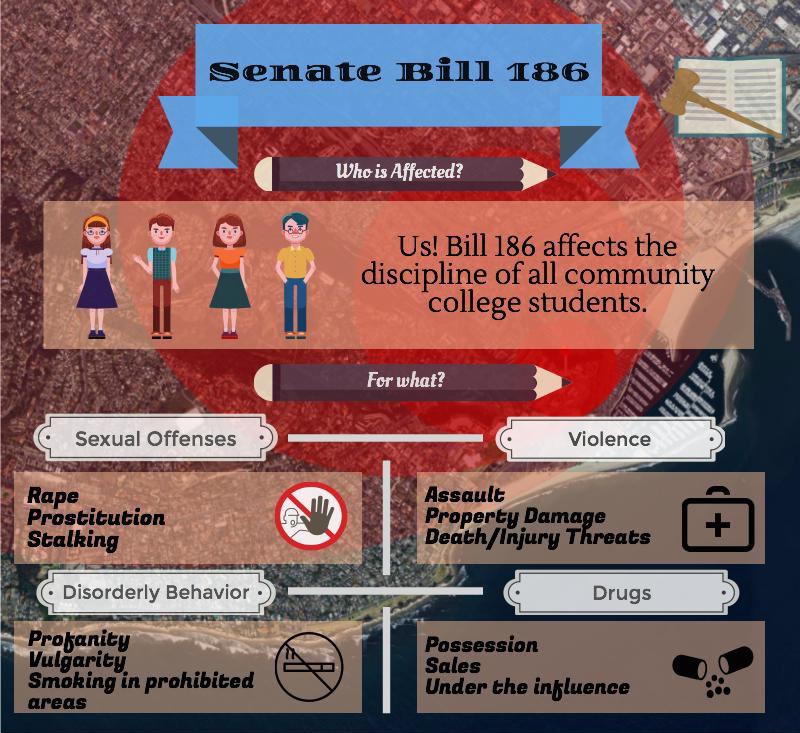Senator Hannah Beth Jackson’s Senate Bill 186 (SB 186) was signed into law on Sept. 1, allowing California Community Colleges to discipline students for crimes that occur off-campus.
SB 186 will extend the jurisdiction of campus administrations, granting them the power to suspend or expel students for crimes such as sexual assault and rape, regardless of the relation to the college. University of California (UC) and California State University (CSU) campuses both have similar power to punish students, but only if the crime was committed on campus.
“This has been a terrible gap in the law,” said Jackson. “It has had a negative effect on our community colleges being able to take disciplinary action against students for this kind of off-campus behavior.”
Until this point, there has been a conflict between the California Education Code and the Standards of Student Conduct.
Last year, the Channels reported on a student who was suspended after being charged for rape, even though the crime did not occur on campus. While the California Education Code explicitly states that no student shall be expelled or suspended for a crime unless it is directly related to campus activities, the Standards of Student Conduct outlines that if there is “good cause,” then the college can take further action to discipline the student.
However, with SB 186 in effect, the school will be able to bridge the gap in these contradicting codes.
“We are very excited about the bill, because it’s going to give us the opportunity to legally impose sanctions and investigate alleged sexual assaults,” said Ben Partee, dean of educational programs. “We’ve dealt with some sexual assaults that have happened off-campus before. We’ve worked with law enforcement and if a student has been charged and convicted, we have worked to suspend that student from the City College.”
The effects of this new law have the potential to be included in an addendum for rental contracts that would further extend the college’s jurisdiction.
The addendum came into play after recommendations by the Neighborhood Task Force last year and will be implemented this semester. As previously reported by the Channels, seven of the apartment complexes in Santa Barbara and Isla Vista that house the highest concentration of City College students have agreed to include the school’s code of honor into their rental contracts.
As far as explicitly including this new legislation into the rental contracts, Joe Sullivan, vice president of business services, stated that it would not be necessary for landlords to do so.
“What goes into rental contractions is at the discretion of the landlords, it’s not at the discretion of the school,” said Sullivan. “It’s definitely not something that we can dictate, so we wouldn’t have any say in that. It gives the school the authority to exercise discipline when it discovers something, so it doesn’t depend on the student agreeing to it beforehand in a contract.”
The Senate Bill was proposed in February of this year and will take effect in all California Community Colleges on Jan. 1, 2016.
















